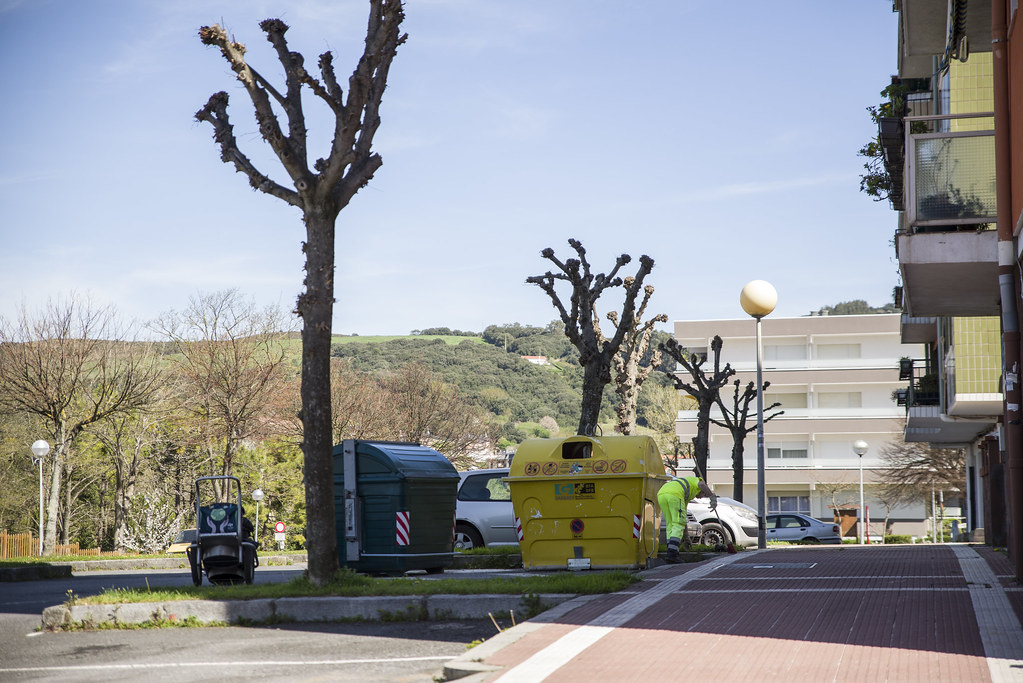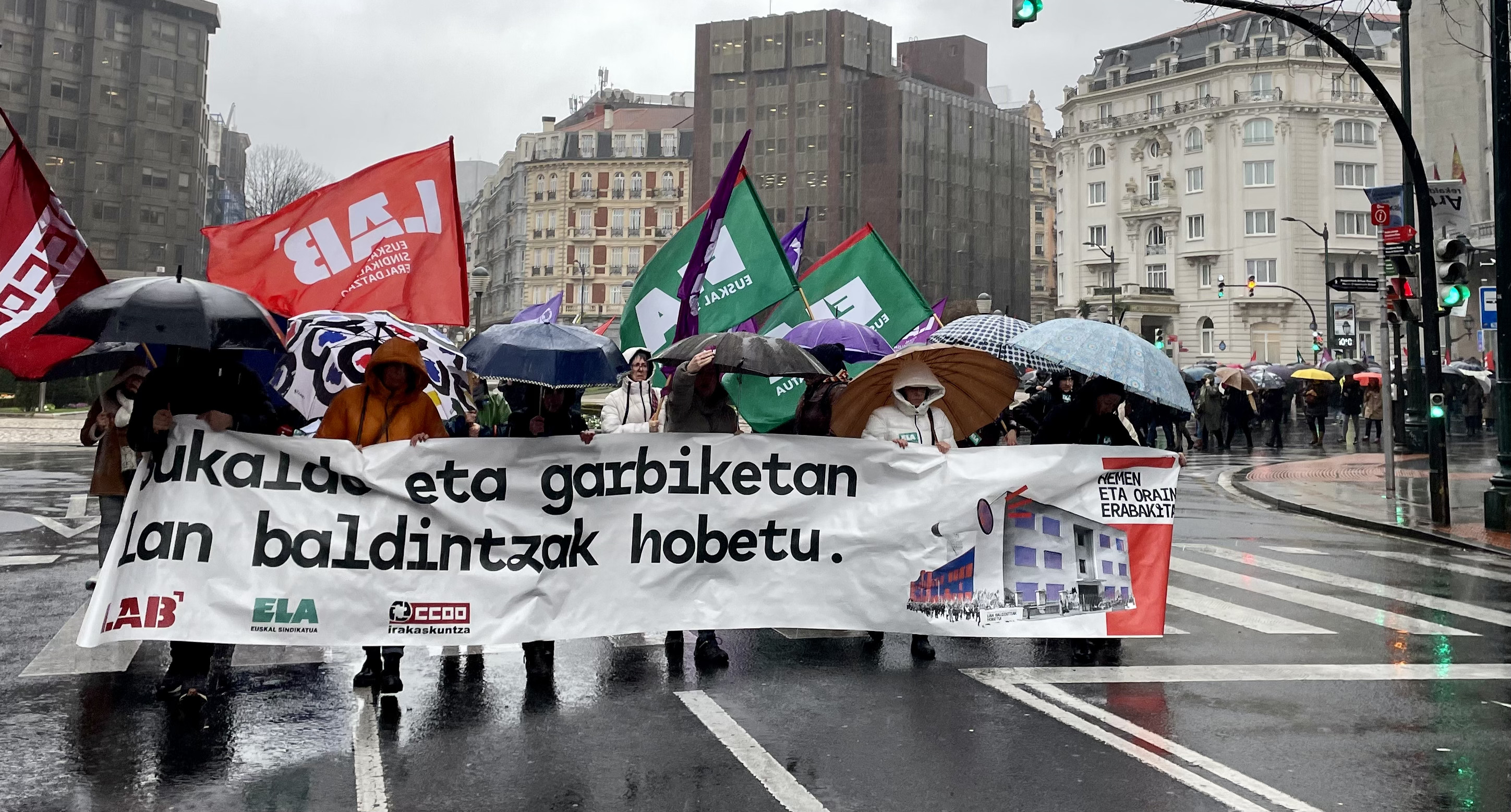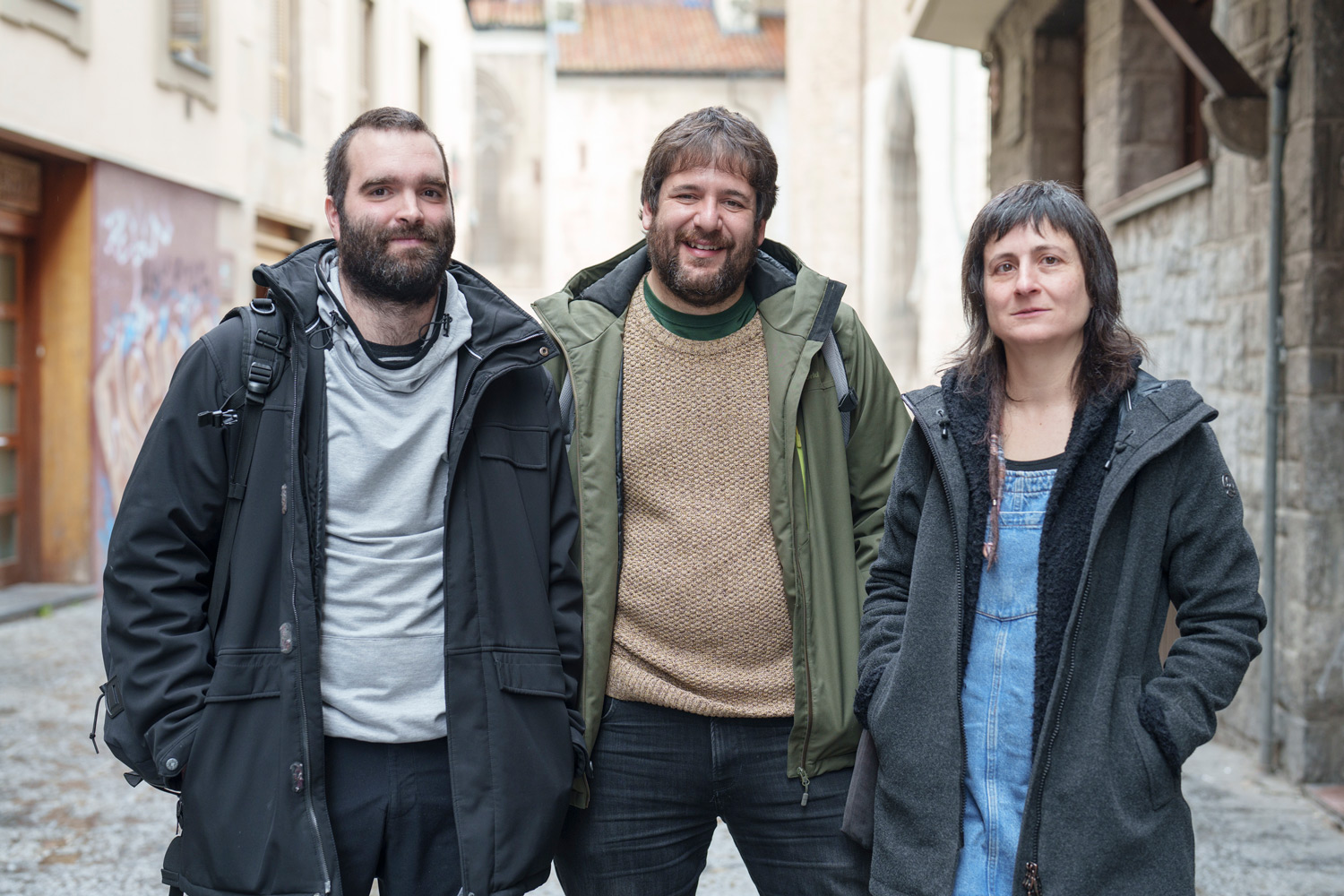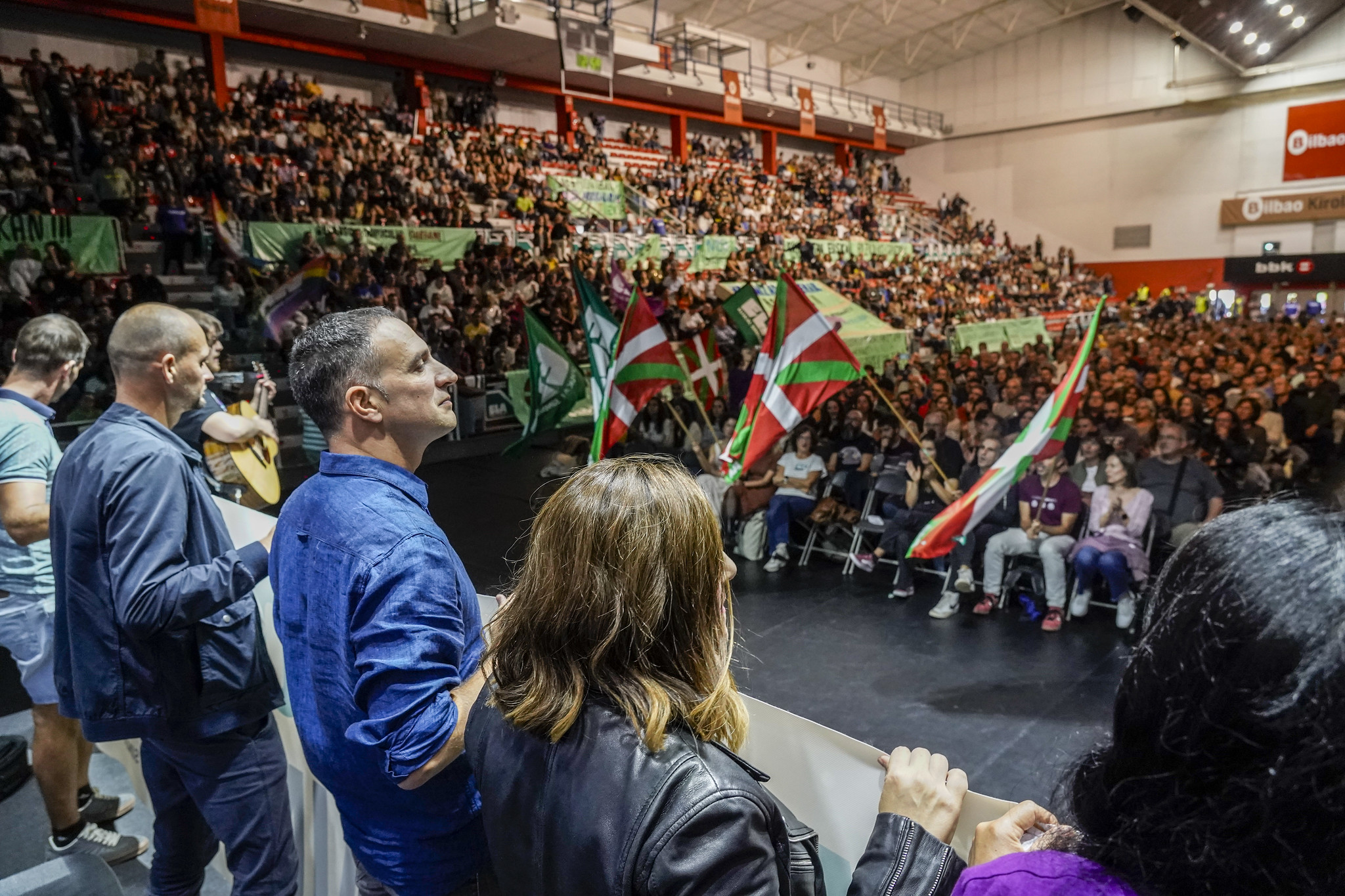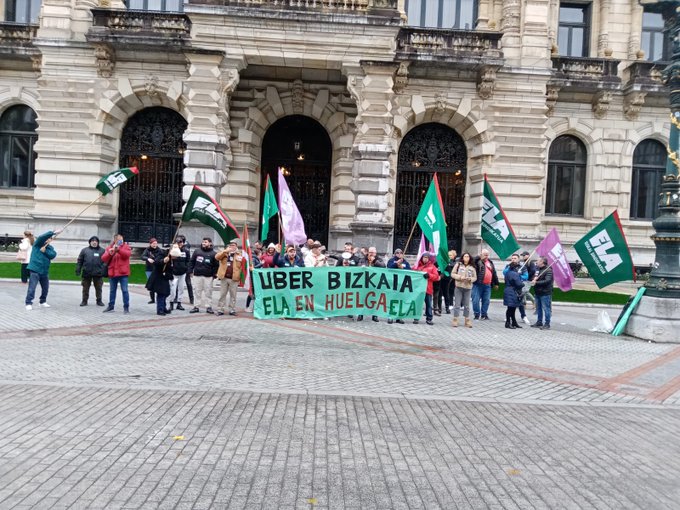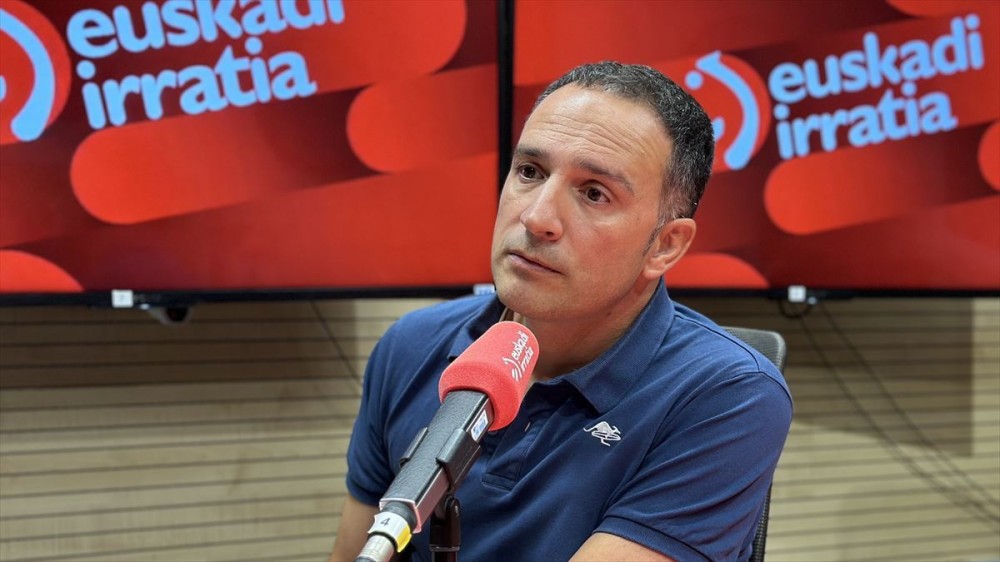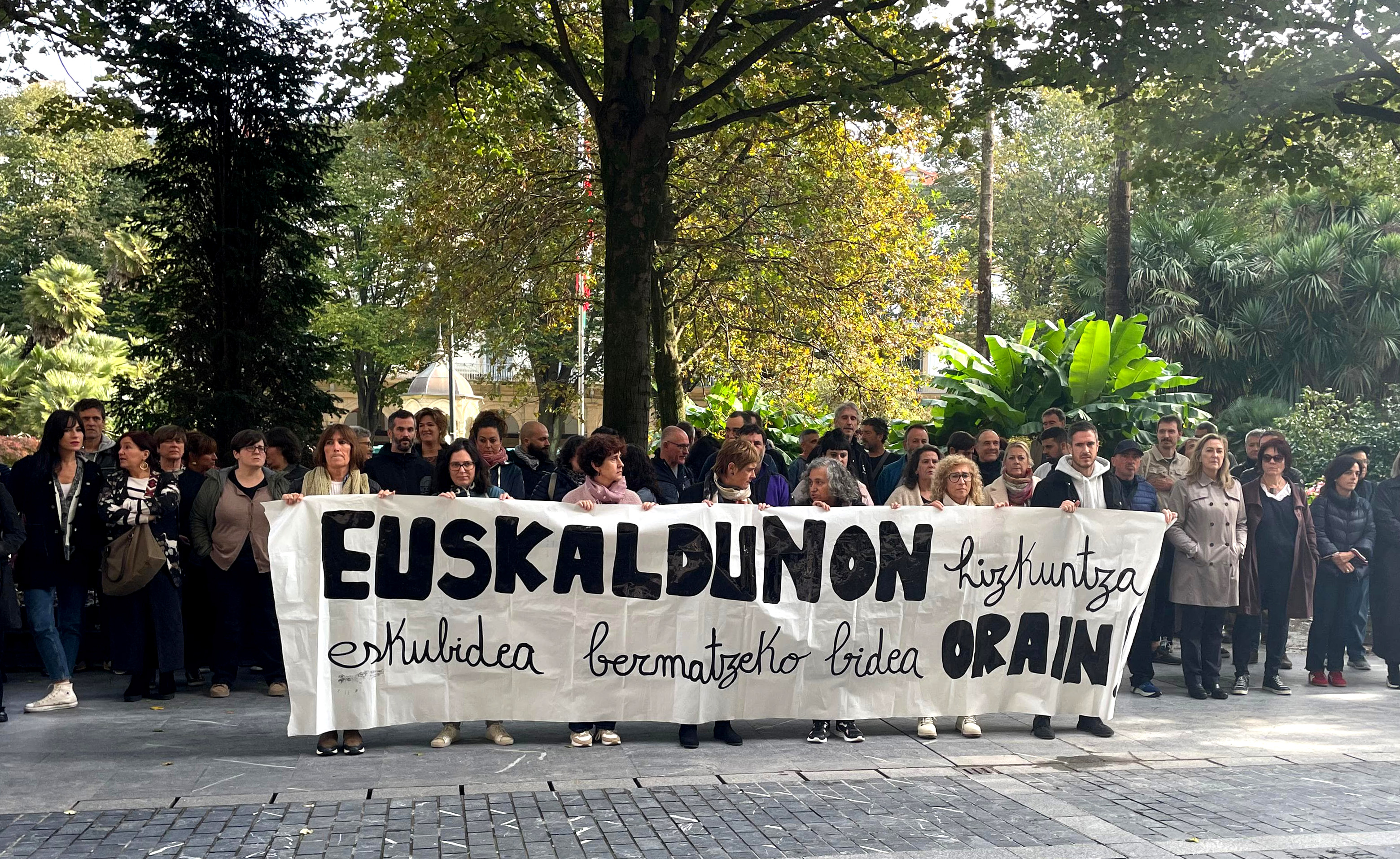"If EH Bildu continues on the path of the PNV, we're wrong."
- On April 5, Mitxel Lakuntza (Pamplona, 1976) was elected Secretary General of ELA and Secretary General of ELA. He has been in charge of ELA for fourteen years and has so far been the coordinator of the union in Navarre. Like Txiki Muñoz, who has replaced him, he speaks with no hair in his mouth.

He has been elected with 95% of the votes, also known as “to the Bulgarian”. Are you so similar in ALS? Do you do a great pre-cooking job? What is the explanation for such a great consensus?
It is the result of a culture of its own that we have worked for a long time. The vote “to the Bulgarian” is given with a raised hand, here the vote is secret. Cohesion is something we work on. The result is very large and that indicates when the union is in place. In the trade union elections we are obtaining the best results of all time, the membership data of recent years are good. The paths of autonomy and counter-control are there, the militants are happy with the work we are doing and these are the results. Today, there is nothing more revolutionary than organizing people. Society will change as it is organized.
In the social sphere, confrontation is your main brand: where, with whom and how far?
If it is done by peaceful and democratic means, as far as possible. How far will the strikes go? It is the employer who decides, not us. They wanted to remove the strike from our vocabulary and a union without a strike is nothing, that is our tool. Society is not the same without strike; strike is part of democracy. In recent years, neoliberalism has also gained in language. At this time of postmodernism it is said that society is becoming more and more liquid, so we claim the tools we always have.
Then they say we are maximalists. See Tabakalera strike: They charge EUR 800 with the state agreement, and we ask that they charge Gipuzkoa: approximately EUR 1,200. In Bilbao we have carried out strong strikes in two hotels, which have gone from 800 to 1,400 euros. Of course, they're biased fights, we don't get to everything, but when you win a strike, it's an invitation to others. Many of the strikes are now taking place
in areas subcontracted by the administrations: concerted education in the CAPV, residences of Gipuzkoa, cleanings of police stations, courts, home workers, children’s schools, school kitchens… The government does not want a union victory and has decided to extend the huelgas.El first objective of the Congress is to deal with the precariousness. The world of the unemployed is probably the most precarious of all.
Is trade unionism not too short in this area?
The unemployed are workers in transit. The unemployed want to start work and in this area we do not have the tools we have in other areas. It assumes the unions, but it's very difficult to organize as a collective. It is not true that we do nothing for the unemployed:There are the HLE training resources against poverty and social exclusion, the employment policies we raise or the reductions in working hours...

Seven years have passed since the adoption of the labour reform. In general terms, how has it affected conventions and working conditions? Labour reform and collective bargaining have been the two
main ones. At present, the facilities for dismissing workers and the possibility of lowering wages through employment regulation dossiers are much greater. In the eyes of the public, collective bargaining has not been so spectacular, but it has been very damaging to the trade unions. The priority has been the company agreement, which could lower wages to an inter-professional minimum.
ELA is the strongest union in Euskal Herria, but only he cannot fight precariousness. Where will it seek alliances?
At LAB, of course, but things aren't right. The two unions are Basque, in public policies there is not much difference, we are opposed to neoliberalism, we have no differences in the tax system and in the budgets, we are against precariousness... In the activity we have problems. We do not agree in the workplaces, particularly in the reflection on the strike. There have not yet been some minimum agreements that would have to be made for collective bargaining.
Yes, you want to collaborate, but then Txiki Muñoz says in Berria: “LAB looks more like us on a day-to-day basis with CCOO and UGT than with us.” Torpedo. It
is important for us to explain why things are not right. Looking at the things that LAB does in some sectors, we understand that it's closer to these two unions than to us, and we're worried about that. If you don’t use the strike as a tool, you’re next to CCOO and UGT and, thus, not striking can be an objective.
A lot of people on the left don't really understand the disputes between LAB and ELA.
I think he understands, that is, “I understand what’s going on, but I don’t agree,” many people may think. We believe that we are losing enormous opportunities for not carrying out this cooperation. But reality is also there and you have to tell it as it is, without falling into fiction.
Can you explain in a simple way the differences you have around the strike?
Judging from concrete examples, it is very easy to see. In the residences of Gipuzkoa we have called 44 days of strike and LAB only four. LAB did not strike in the residences of Bizkaia. But in addition to the strike, LAB is part of a movement that creates distortions. Taking into account where EH Bildu is, in Navarre and in the CAV we have had tensions with LAB. We analyse policy in terms of the substance and not of who does it. We know where LAB is, but we ask for minimal autonomy.
I’ve heard more than one from ALS, “Don’t think the ALS base is as left-wing as the direction.” Is there such a leap?In ELA we are 100,000 members and to the extent that
Euskal Herria is diverse, our base will also be plural. The 2,000 members of the Ribera will not be like those of the Goierri, but they have a common component: They've joined ALS and they know what ALS is. In Muskiz, in Legazpi or in Cascante we say the same thing. In all of them it states: The Basque union. People know that they join an Abertzale and wrestler union. That being the case, no one is asked whom he is going to vote for.
In a press article in which four well-known people made harsh accusations to you last November: your left-wing character is apparently only hard [“present-stone left”]; you make a left testimonial and this favors neoliberalism. Furthermore, you are fleeing the struggle for sovereignty.
We decided not to respond, it's not our style, and now I don't answer either. If EH Bildu continues down the path of the PNV, we are wrong. ELA raises four things: to oppose current policies, to propose alternatives, to pedagogy and to organize mobilisation. The left has to mark its own field. The current strategy seems to be to compete with the centrality, and as a consequence, the policy being made is increasingly similar to that made by the PNV. EH Bildu is in a very institutional challenge and institutions are important, but society is changing its foundations. This has been clearly seen in the debate on the budgets of the Basque Government and in the negotiations on the new status.

Your accusations are also harsh: “EH Bildu resembles the PNV” or “the PNV has no opposition.” We have
to say what we see. In the face of many truths we have no answer, but we have to say them, because truth builds consciousness. The situation of the PNV is very curious: a year and a half ago they approved the PP budgets in Madrid; here they ruled with the PSE. He has therefore eliminated two oppositions and the third asks him every day for agreements in different areas: status, budgets… We have plenty of room in social policies to make more radical policies, but EH Bildu is not going in that direction.
Let us look at a specific example. In the budgets of the Basque Government, EH Bildu has tried to raise EUR 233 million to raise pensions to EUR 858, and then reach EUR 1,080. The improvement in the IGR amounted to another 163 million: From EUR 732 to 858. Why should there necessarily be an amendment to the whole?
If you decide to play in that framework of the PNV, you know where the limits are, and before you realize it, you do what they do. It is not true that there was talk of pensions, there was talk only of GI complements, of the number of cuts, and they did. The policies of the NIP are determined by companies: here the corporate tax is half of the European tax. In the tax system, it is the workers who pay more and more. When we talk about fraud, we talk about other small scams – for workers to stick – of those big tax scams of those who do not have money. All of this is normalizing. The average rental of homes exceeds EUR 1,000 and no one limits that price. Those things are times of struggle, and we want to talk about them.
But institutional play also has it. In the collective negotiations you are also negotiating in a similar way, step by step, an increase of 6% now, EUR 200 more in three years…
It is different. In politics, there's no conflict, that's the difference. They often try to avoid conflict. We in the workplace are in conflict, we all do not win, it depends on the correlation of forces, but when they win us we do not say that it is the best agreement, but that which has propitiated our forces, and we try to do pedagogy. In politics, no. In Navarre, for example, a small fiscal policy was made and the quadripartite came out saying that a great reform had been made. The same tax structure left by UPN has remained in Navarre, but they do not want to approve it. Another example: UPN says that the company goes for Navarre in relation to fiscal policy and Mikel Aranburu replies that in Navarre companies pay less than in any other territory. But nobody cares about it, because those accounts are not at the forefront of politics.
They say that in Navarre there have been no substantial changes, but on some issues they have changed a lot: those of corralito, the Basque country, the symbols, the victims, the memory, the Waste Law… Yes, and we have applauded them, but in the labor or economic sphere it is very difficult to
find founded changes. The percentage currently allocated to Osasunbidea or education has not increased at all. Temporary employment in both sectors is above 30%. Should we be silent? We are going to help that government four out of the demand and the demand. We have also seen very ugly things: In 2018, for example, the Government of Navarra denied us that the Charter of Social Rights of Euskal Herria gave way to the popular legislative initiative on housing and guaranteed income.
They say that we are in demobilization at the national level. Why?
This is not the only factor, but the policies pursued by the Basque Government, in particular, and by the Government of Navarra, contribute to this vision. They reinforce unreal realities. For example, the PNV repeats its bilateral relationship with Madrid over and over again, and that is not true: Madrid decides. There is not enough force from a sovereign point of view. For example, here you can form a strong left-wing social pride, but it's not done; maybe the results would not be seen in the short term, but at least we wouldn't have fiction, maybe what we think today is that we're not sovereigns.
Jose Elorrieta said in an interview with ARGIA: “At this political stage, the accumulation of sovereignty should be done without the PNV.” But you think that EH Bildu is making that accumulation more with the PNV than with you.
That's right. This is seen in the debate on the new status, but the current PNV is not the PNV of Lizarra-Garazi, there is nothing more to do with what this lehendakari says and where its concerns lie.
Let us return to the specific issues. How can we cope with the “spending ceiling” policy that Madrid has imposed since 2010?
First, by indicating the opposite position. We do not believe that this is a problem for the governments of the South today. That is, when Mikel Aranburu goes to Madrid and comes with a spending ceiling, he comes with an agreement, not an imposition. Like the Basque Government.
But if you disagree, you have to comply with the law, if you don't fall into disobedience.
That is not the case. Here are several options, but you don't even want to explore. In the City Hall of Madrid there was a conflict with Montoro and that law, but other avenues were sought. Nothing is done here. So what is politics? The art of obeying? You'll have to look for slots or a minimal confrontation, right? But what is our opinion? Let the governments here share those policies of budget cuts.
You say you're a feminist. How?
Shouldn't we leave feminism to women?
I try to be a feminist, it's a purpose. The will of the union members is to move in one direction. For us feminism is the philosophy and ideology against discrimination and equality. It's not an easy road, because you realize things you haven't seen so far. From now on, this union will become a more effective tool for women who want to organise themselves. Women currently have 45 per cent of their membership and more and more women are sharpening. Why? Because we have put our eyes on precariousness and in these sectors it is mainly women. In 1997, the entire direction selected was composed of men, currently women are more than men. At ELA, we're building feminism: we're not in liberal feminism, we're not in feminism versus men. Feminism is a tool to make a union better for us.
Authoritarianism, the extreme right, is spreading in Europe. Here too, but many of its values are already integrated into broad social spheres. How do we deal with it? The
union must be a refuge and an instrument. If you're in a trade union, you're less likely to fall into the claws of the extreme right. But here too there is Basque authoritarianism, and [Iñigo] Urkullu knows very well what that is. On Monday I received the congratulations of Uxue Barkos, Urkullu hasn’t told me anything yet, and I don’t know if he will, but even when they chose Txiki Muñoz, they didn’t even send us anything. We always congratulate them when they are elected. It is nothing more than a formality, but it is very representative. Lehendakari Urkullu refuses to meet the first union. Your Government has drafted a law to enable UGT and CCOO to sign the Basque Government’s agreements in a minority.
And they take a step further in everything related to the strike. For example, what the Council of Gipuzkoa is doing with the residences is enormous. ELA makes a political criticism of the usual, but this time we have again made another accusation to the Member: Markel Olano and Maite Peña lie and falsify a document. Here we reached an agreement between Adegi, Matia and ELA. We went to the Council with that agreement and distorted the document to say that there was no agreement. That is very serious. That's authoritarianism. The Member has chosen to prolong the strike, and here there will be a long strike, but because the Member wants it.
Another example: in the area of the cleaning up of police stations and courts, the Council says that police stations are very dirty and that they must be cleaned up. What has he done? Minimum services are set at 100% and it is over. Another, in the case of Tabakalera, the Mayor of Donostia-San Sebastián, Eneko Goia, told the workers: “I will meet with you, but with the union no.” I mean, what's the consequence? That the PNV has an authoritarian, anti-strike and anti-social position. Our choice is also strong: we will face all of this. But I do not say that, as the workers say; what has happened in Bizkaia is very much in mind.
Lehen aldia da Hego Euskal Herriko euskal gehiengo sindikalak armagintza industriaren moldaketaz taldean eta modu publikoan hitz egiten duena. Aurreko hilabeteotan mugimendu antimilitaristak bilera bana egin du lau sindikatuokin, produkzio militarra “sozialki... [+]











